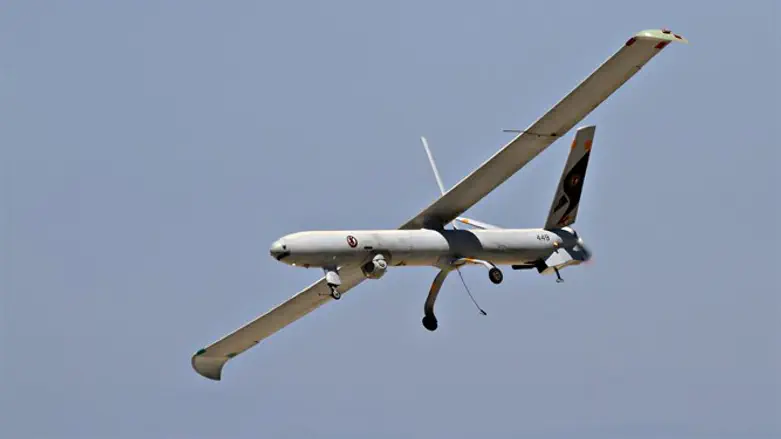
The situation regarding a new deal with Iran about its nuclear program has deteriorated over the past few days after France and the US Administration of President Joe Biden said that time to reach a new agreement was running out and after Iran refused to continue cooperation with the International Atomic Energy Agency (IAEA).
Israel meanwhile, continues to oppose the deal but has altered its policy toward the renewal of the agreement since its new government was inaugurated.
During a visit to France US Secretary of State Antony Blinken last week revealed that the United States still had "serious differences" with Iran regarding a return to compliance with the nuclear deal.
"There will come a point, yes, where it will be very hard to return back to the standards set by the Joint Comprehensive Plan Of Action ( JCPOA is the 2015 nuclear deal with Iran)," Blinken told reporters.
Blinken then warned that if Iran "continues to spin ever more sophisticated centrifuges" and steps up uranium enrichment, it will advance the "breakout" time at which it will be dangerously close to the ability to develop a nuclear bomb.
Nevertheless, he and President Joe Biden still supported a return to the accord, according to the top US diplomat.
"We have a national interest in trying to put the nuclear problem back in the box that it was in with the JCPOA," Blinken said.
French Foreign Minister Jean-Yves Le Drian added to that the US and France “expect the Iranian authorities to take the final decisions - no doubt difficult ones - which will allow the negotiations to be concluded.”
Iran, however, appears to be ignoring the warnings by Blinken and Yves Le Drian and on Sunday defiantly announced it would no longer cooperate with the IAEA and would no longer hand over images of its nuclear sites.
Iranian state-controlled media reported that Mohammad Bagher Qalibaf, speaker of Iran’s parliament, had declared the 2015 “agreement (with the IAEA) has expired… any of the information recorded will never be given to the International Atomic Energy Agency and the data and images will remain in the possession of Iran.”
Last Friday, the IAEA announced that it had not received a reply from Tehran over extension of the agreement with the UN nuclear watchdog which expired on Thursday the same week.
Iran’s behavior contradicts earlier statements made by outgoing Iranian president Rouhani who two weeks ago predicted that an agreement with the US would be reached before the end of his term.
Rouhani made his statement before the Iranian presidential election took place, however, and ended in a victory for extremist Ibrahim Raisi. Iran’s hard-line approach toward the IAEA inspections could something have to do with Raisi’s election, which again showed that the Islamic Republic is ruled by Islamists.
Israel, on its side, has also altered its policy vis a vis a US return to the JCPOA and departed from the way former Prime Minister Benyamin Netanyahu dealt with the US regarding a return to the deal by the Biden Administration.
While Netanyahu refused to discuss the content of a revised nuclear deal with the US administration, the current Israeli government headed by Prime Minister Naftali Bennett and alternate PM Yair Lapid, who is also Foreign Minister, decided to send Israeli experts to Washington to discuss the emerging new agreement with the Iranians.
Lapid, furthermore, agreed with Blinken “not to surprise” one another when it comes to Iran’s nuclear program, a policy vehemently opposed by Netanyahu who said Lapid’s “ incredible commitment “ would harm the heart of Israel’s national security.
Bennett reportedly later said he would conduct a policy of not creating daylight between his government and the Biden administration over Iran and the nuclear deal, according to a source in the PM’s office.
Netanyahu reacted to this by stating US Secretary of Defense Lloyd Austin had made a similar request about the "no surprises" policy to him but that he had rejected the idea.
Bennett’s remarks seem to contradict what he said during the first days of his tenure as Israel’s Prime Minister.
“Returning to the Iran deal is a mistake that will once again give legitimacy to one of the most violent, darkest regimes in the world,” Bennett said before his swearing-in as Israel’s new PM.
He later added that the world “is doing business with mass murderers”, a reference to the fact that Raisi had been responsible for the execution of at least 5,000 Iranians in the eighties of the last century.
It could be, however, that Bennett is trying to restore relations with the new Democratic Administration in Washington while continuing the covert war against the Islamic Republic.
Relations with the Democratic Party soured over Netanyahu’s approach to the US negotiations with Iran over the JCPOA and Lapid especially wants to restore the bipartisan policy of the Israeli government.
Meanwhile, Iranian sources reported on Wednesday last week, that a nuclear facility in the city of Karaj had been targeted by a quadcopter-style drone.
Since the quadcopter has a short-range, the attack must have been conducted from Iranian soil and could have been carried out by Mossad agents, Israeli observers surmised.
This also happened in November last year when the assassination of Mohsen Fakhrizadeh, the founding father and head of the Iranian nuclear program, was attributed to the Mossad.
The facility in Karaj is producing the new generation of Iran's uranium hexafluoride enrichment centrifuges and is now severely damaged, according to the Iranians.
The attack, if carried out on behalf of the Mossad, could have been Bennett’s first message to the new Iranian regime, showing that Israel will indeed continue to carry out strikes that sabotage the Iranian nuclear weapons program.
“Israel will not allow Iran to get nuclear weapons. Israel is not a party to the (nuclear) deal, and will maintain total freedom of action,” Bennett said hours before he became the new PM of Israel.